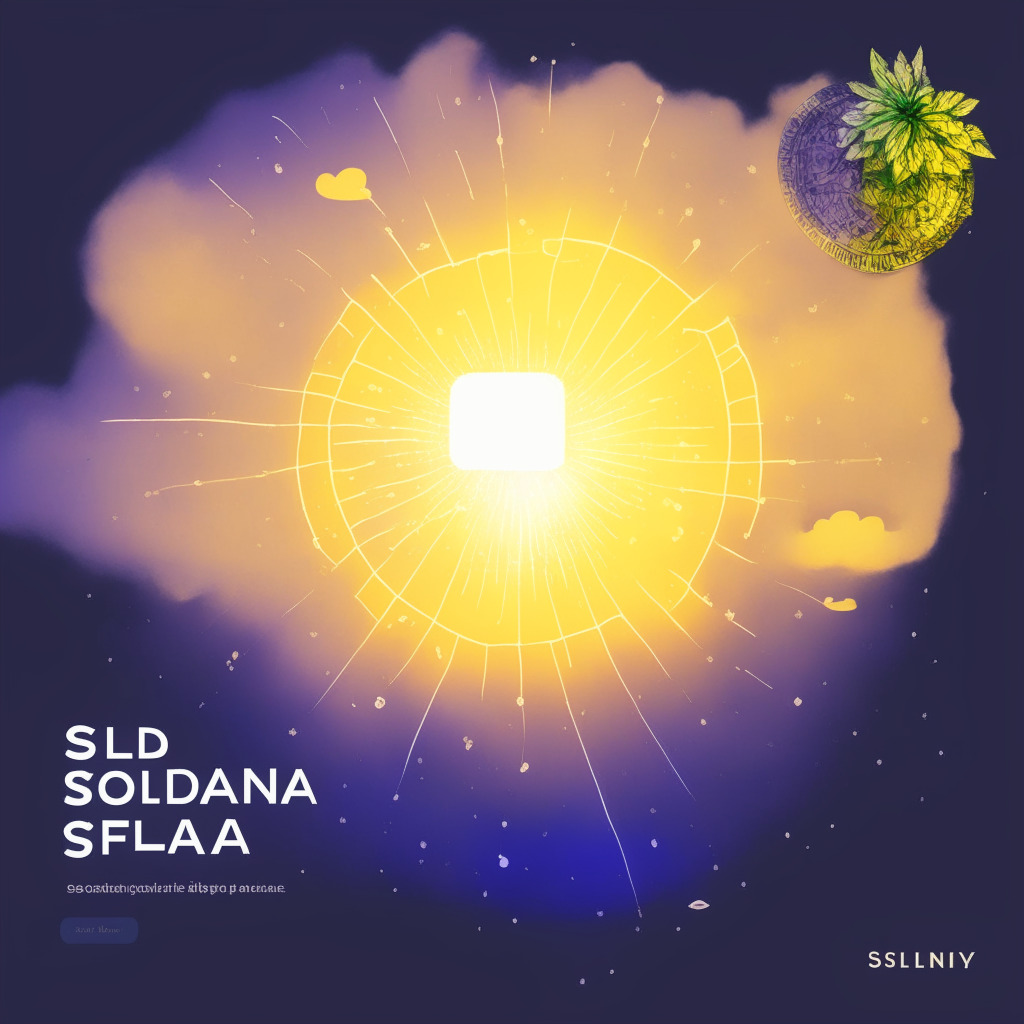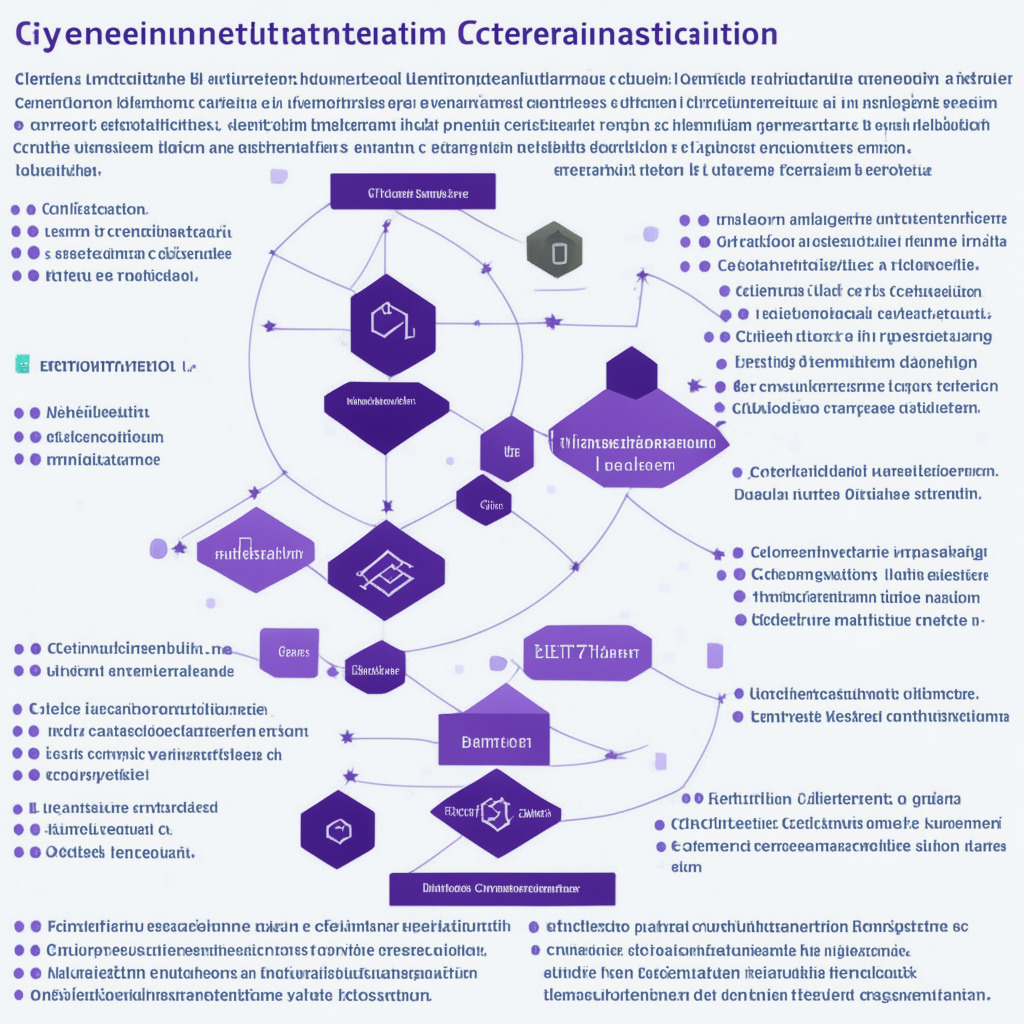“Shopify’s integration of Solana Pay, a payment protocol built on the Solana blockchain, enables users to make purchases using USDC – bridging the gap between crypto wallets and online retail. However, despite its convenience, this brings a new layer of complexity for consumers with a steep learning curve.”
Search Results for: Efficient Frontier
AI’s New Frontier: How yPredict is Revolutionizing Crypto Trading with $YPRED Token
“yPredict, an AI-based crypto trading platform, successfully raised above $2.6 million in its presale. Its ‘Litepaper’ plan aims to create a sophisticated crypto trading platform that offers AI-generated signals and pattern recognitions. The platform also features generative AI chatbots and machine learning-based Large Language Models (LLMs) for efficient financial market forecasting.”
Blockchain Aid: A Lifeline in Humanitarian Crises or a Cybersecurity Challenge?
Local Israeli blockchain organizations have formed ‘Crypto Aid Israel’, a global fundraiser to provide urgent aid to displaced citizens amidst ongoing conflict. The initiative aims to deliver immediate help, like food and medical products, and emphasizes the importance of secure transactions to prevent scams. This blockchain-powered aid highlights the potential of the technology in humanitarian situations.
ZkLink’s $10M Funding Paves Way for Cross-Chain Trading Revolution: Coinbase Backs the Project
ZkLink, a blockchain infrastructure layer streamlining asset trading across networks, raises $10 million in strategic funding with backing from Coinbase Ventures. As zkLink prepares for Q3 mainnet launch, it plans to employ zero-knowledge rollups to create efficient, trustless trading experiences, aiming to connect layer 1 blockchains and layer 2 protocols.
Riding the Crypto Wave: Basel Committee Pushes for Bank Disclosure and Regulation
The Basel Committee on Banking Supervision might soon impose disclosure requirements for banks’ crypto assets, underlining the risks involved in drastic shifts in finance and technology. Amid discussions about crypto regulations, it’s crucial to balance embracing technological advancements and mitigating their associated risks. A consultation paper on crypto asset exposure disclosure is expected soon.
Blockchain Storms the Cricket Pitch: Pros, Cons and Uncertainties about the 2023 World Cup Initiative
“The International Cricket Council (ICC) will use NEAR’s Blockchain Operating System for fan engagement during the 2023 Cricket World Cup. This blockchain-based method promises personalized experiences for fans, but requires technological understanding and constant updates to operate smoothly. This move further showcases NEAR’s interoperability capabilities.”
New Bitcoin-based Fungible Token Protocol ‘Runes’ Vs BRC-20: A Double-Edged Sword Debate
Bitcoin Ordinals creator, Casey Rodarmor, proposes a new token protocol, ‘Runes’, as an alternative to the BRC-20 standard. Rodarmor suggests BRC-20 tokens clog the Bitcoin network with “junk” Unspent Transaction Outputs. He believes ‘Runes’ could help promote UTXO set minimization and potentially add value to the Bitcoin network.
Dissecting Project Sela: Orchestrating the Safe Future of Central Bank Digital Currencies
“Project Sela showcases the potential of central bank digital currencies (CBDCs), implementing a novel intermediary approach to reduce liquidity risk. Dealing with concerns about cybersecurity and privacy, it signals a future where transactions settle directly on the central bank’s ledger, inspiring global central banks’ digital transformation.”
Unraveling the Tax Conundrum in the Metaverse: A Closer Look at Virtual Economies and Policies
Harvard legal scholar, Christine Kim, proposes a shift in tax principles for the ‘metaverse’. Economic activities involving virtual assets could be considered taxable. She outlines models for tax collection, accounting for potential resistance and discusses possibilities for taxing unrealized gains. Managing tax evasion and accurately valuing new assets are identified as challenges.
Bridging the Gap: ChatGPT as the Unlikely Hero in Web3 Development and Blockchain Adoption
“ChatGPT has emerged as a key tool in Web3 development, bridging knowledge gaps and simplifying learning about smart contract formations. It facilitates interaction with decentralized networks, assists in understanding the role of decentralized identities, and provides insights on future Web3 trends.”
Singapore Central Bank’s Stablecoin Guidelines: Pros, Cons and the Future of Blockchain Regulation
Singapore’s central bank, the MAS, unveils its regulatory framework for stablecoins, endorsing a three business day timeline for single-currency stablecoin transfers, similar to regular domestic money transfers. Critics argue this fails to fully leverage blockchain’s instantaneous transaction capabilities, suggesting regulatory flexibility is needed to harness the technology’s full potential.
Blockchain and Startups: A Tale of Disruption and Challenges in Fundraising Landscape
“Blockchain technology is revolutionizing the traditional fundraising landscape by facilitating tokenization of assets and democratizing investment opportunities. Despite promising outcomes with global accessibility and efficient smart contracts, success still depends on several variables. It’s essential to address associated risks and regulatory requirements as blockchain continues to redefine investment in the startup ecosystem.”
India’s Digital Rupee: A Cross-Border Game Changer against Dollar Deficiency
The Reserve Bank of India’s digital rupee initiative aims to simplify trade for countries with scanty US dollar reserves, potentially boosting India’s exports. This fast and cost-effective cross-border payment system could provide an economic solution for nations struggling with dollar deficiencies.
Centralization in Layer-2 Rollups: Boon or Bane for Ethereum’s Scalability?
Centralization in layer-2 rollups on the Ethereum network might not be a negative aspect, as it reduces centralization pressure on layer-1, according to Stephane Gosselin, former co-founder of Flashbots and Frontier Research founder. Despite concerns, centralized sequencers can coexist with decentralization without undermining blockchain technology’s core principles.
Tokenization Trend Booms: $220M Market Cap, DeFi Integration, and Regulatory Challenges
Tokenization of financial securities on the blockchain is gaining momentum, with a market cap of over $220 million. Firms like Matrixport, Backed Finance, Ondo, and Franklin Templeton create tokenized government bonds and ETFs, predominantly on Ethereum. This trend enables new opportunities, improved lending efficiency, and promises innovation in finance; however, it requires a supportive regulatory landscape to reach its potential.
NYC Blockchain Hub: Innovating Amidst Pros, Cons, and Conflicting Views
In the heart of New York City lies an epicenter for blockchain technology and crypto markets, fostering innovation and groundbreaking developments. The digital ledger’s security, transparency, and seamless integration with various industries are significant benefits. However, the technology faces challenges like lack of regulation, scalability issues, and energy consumption concerns. Events and conferences in locations like 133 W 19th St. play a crucial role in building a thriving blockchain community, shaping the future of finance and technology.
Blockchain’s Financial Revolution: Embracing Potential or Risking Disruption?
The future of blockchain technology holds potential to transform financial markets, supply chain management, and voting systems through its decentralized, transparent, and secure network. Despite skepticism and regulatory uncertainty, major banks and businesses continue to explore integrating blockchain into their operations.
Decoding Cointelegraph: Navigating Blockchain & Cryptocurrency’s Challenges and Potential
Cointelegraph magazine offers updated information on the blockchain and cryptocurrency world, covering decentralized technology, adoption across industries, and investment opportunities. Despite potential, scalability and energy efficiency challenges, environmental concerns, and market unpredictability persist. Stay informed for better understanding and participation in shaping the industry’s future.
Gemini Foundation’s Global Expansion: Innovation vs Regulatory Challenges in Crypto Derivatives
Gemini recently launched the Gemini Foundation, a platform offering non-US derivatives to clients in 29 countries, highlighting a growing trend of crypto companies seeking favorable regulatory environments offshore. However, clients from the US, UK, and EU remain excluded, raising concerns about global crypto regulations and market fairness.


















